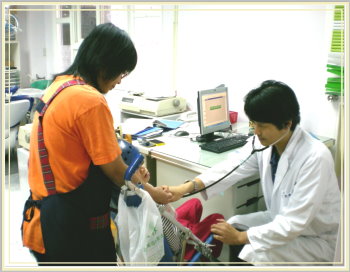
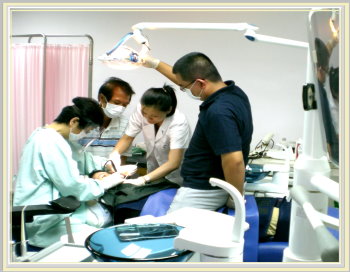
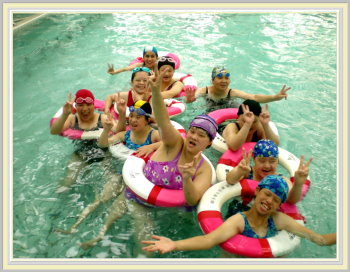
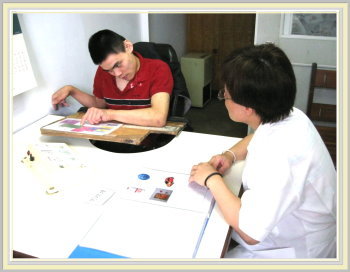
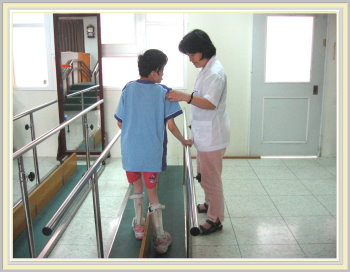
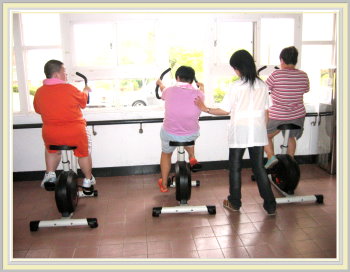 | The Health Services Section consist of one section chief, two nursing chiefs, two registered nurses, ten licensed vocational nurses, one nutritionist, seven physical therapists, five vocational therapists, and two language trainers, devoted to residents’ health management and health improvement. The team is actively seeking service programs and policies to effectively slow down residents’ aging process, providing professional cares and leisure activities that are beneficial to residents’ quality of life, thus alleviating their burdens and medical expenses. The various services provided by this section are not only based on the “longitude” of nursing team with prevention, nutrition, medication and treatment, but are also based on the “latitude” of rehabilitation team with health promotion, rehabilitation, assistive technology and counseling, to create one medical service network, two task forces, three developmental directives, four major programs, and five exercise areas to create a healthful, safe and dignified home for the disabled. Under the leadership of current superintendent, this section introduces many pioneering, comprehensive and sustainable measures. - Establishing Yangming medical network – The Home for a long period of time is medically supported by Yang Ming branch, Taipei City Hospital. Outpatient services available include: pediatrics, dentistry, rehabilitation, neurology, dermatology, and psychiatry. Residents suffering from acute diseases or accidents are sent to the Yang Ming branch for treatment. The hospital also provides on-call outpatients and emergency services, so that residents receive the best possible care to ensure their health. Should it be necessary that the residents be hospitalized, the Yang Ming branch also provides preferential discounts in medical expenses according to individual needs.
- Two task forces – due to demands caused by aging among residents and service adjustments, this Section is actively involved in the Institute’s “Service Orientation Project Task Force” and “Interdepartmental Task Force” to discuss and research issues on aging among residents, aging evaluation criteria, individualized training assessment, curricula outline revision, division and integration of labor, family service demands, vocational counseling and evaluation, vocational skill nurturing demands, and the promotion of the rights and interests of residents. The task forces work to consolidate consensus and unity, and readily accept new challenges and adjustments according to the demands and shift in the residents’ makeup so as to create a more robust, diverse living space for the disabled.
- Three developmental directives – including disease prevention, health promotion and dignified living. Each directive consists of many branch projects. Disease prevention includes annual health checkups, flu prevention and treatment, and outpatient emergency services. Health promotion encompasses the caring of overweight residents and underweight residents, dental hygiene and care. Dignified living constitutes physical fitness programs, communicative skills promotion, vocational and potential development projects.
- Four major projects – this Section works in collaboration with Yang Ming branch, Taipei City Hospital to conduct four major projects, including the caring of overweight residents and underweight residents, osteoporosis treatment project and the caring and treatment of swallowing disorder.
|






![Taiwan.gov.tw [ open a new window]](/images/egov.png)
